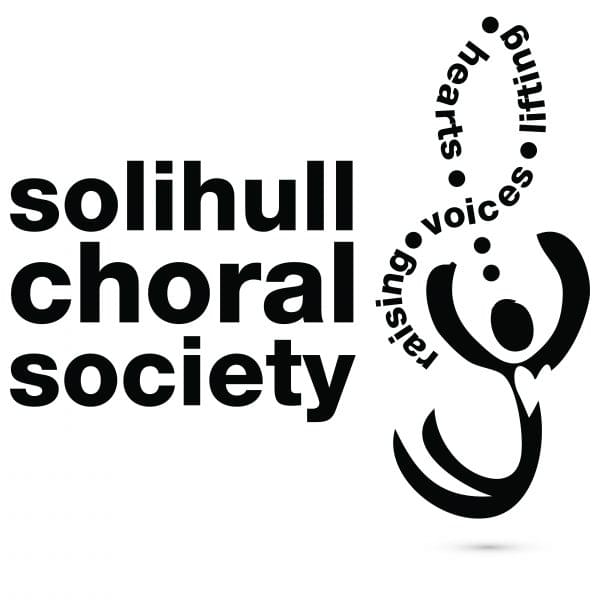Dear Lord, here it is finished, this poor little Mass. Have I written sacred music or damned music?” You well know I was born to write comic opera. It contains little technique, but all my heart. Praise be to you, and grant me entry into Paradise. G Rossini – Passy 1863.
With this inscription, Rossini completed his final major composition – the Petit Messe Solennelle – five years before his death in 1868 at the age of 76. Remarkably it was the first serious composition Rossini had written for over 30 years, with his 36th and final opera – Guillaume Tell – completed and premiered in 1832. During his extended retirement, initially in Italy but from 1855 in Paris, he wrote over 150 piano pieces, songs and small ensembles which were only ever performed in his salon for private audiences, which included most of the great artistic and public figures in Paris at the time. Rossini refused to have these pieces published, referring to them as Péchés de vieillesse (‘sins of old age’). It was for one of these private audiences that the Petit Messe Solennelle was first performed.
While modern performances, such as that this evening, usually include a large chorus with independent soloists, the Messe was intended originally for a group of 12 voices (Rossini’s instructions throughout are that the soloists should also sing the chorus parts when not otherwise involved), accompanied by piano and harmonium. The intimacy of its first performance must have seemed extremely distinct from the composer’s grand works for the stage. In style and spirit, however, the fourteen movements are entirely operatic in character with moments of ecstatic energy and joy (such as the double fugues at the end of the Gloria and Credo) mixed with feelings of great despair and gloom (such as in the Crucifixus and Agnus Dei). This incorporation of music of the opera house into sacred repertoire may appear to have been a bold innovation, but in fact it was an established practice. Well-known examples preceding that of Rossini include Vivaldi’s famous ‘Gloria’, Handel’s oratorios which frequently used material from his own operas, and Monteverdi’s 1610 Vespers which borrowed its overture from The Coronation of Poppea. What is unusual in the case of Rossini’s work is the extraordinary number of years that had elapsed since his last opera. Despite this, the Messe certainly abounds in the memorable tunes and rhythmic vitality for which Rossini became justly famous 30 year previously.
The quiet A minor opening of the Kyrie Eleison contrasts sustained choral writing with a running bass part in the piano accompaniment. This soon gives way to a brighter mood as the music moves into the major. For the Christe Eleison, Rossini adopted a deliberately archaic style, echoing the church music of Palestrina some 300 years earlier. As the second Kyrie unfolds, the movement returns to the serious mood in which it began. The Gloriabegins with a short introduction for chorus and soloists, followed by four extended solo movements that are operatic arias in all but name. The chorus returns for the final section of the Gloria, an extended fugue to the words ‘Cum sancto spiritu in gloria Dei Patris, Amen.’ This is a real tour de force of musical craftsmanship, reflecting the thorough classical training in harmony and counterpoint that Rossini received all those years ago at the Bologna Academy.
In the Credo Rossini ingeniously uses the word ‘credo’ as a unifying motif to which he repeatedly returns. This section of the mass concludes with another brilliant fugue for the chorus, at the words ‘Et vitam venturi saeculi, Amen.’ There follows an extended piano solo, leading to a lyrical Sanctus and Benedictus, and the work ends with a moving Agnus Dei for the alto soloist and chorus.
The solo movements also clearly owe much to his earlier operatic style; from the gracious trio (contralto, tenor, bass) of the Gratias to the energetic, joyful and memorable Domine Deum (tenor) and expressively lyrical Quoniam (bass). The soprano and contralto duet of the Qui Tollis clearly owes much to the composer’s artistic obsession with the Marchisio sisters, singers Carlotta and Barbara, known to have visited his Parisian apartment. The insertion of the O Salutaris (not part of the liturgy, but often used as a hymn during the Mass or Benediction) provided Rossini with an opportunity to explore the unusual harmonies he was using in his piano pieces (the ‘sins of old age’) at the time.
On first hearing the Petite Messe Solennelle, the listener is tempted to adapt a remark attributed to Napoleon III and declare that the piece is neither little, solemn nor especially liturgical in spirit. However it does freely embrace all of life’s emotions, from joy to sorrow and everything in between. Indeed, it may be said that the absence of a stage, props and costumes allowed the ailing composer to shine the spotlight on a subject even closer to home.
Oliver Walker
Our Soloists
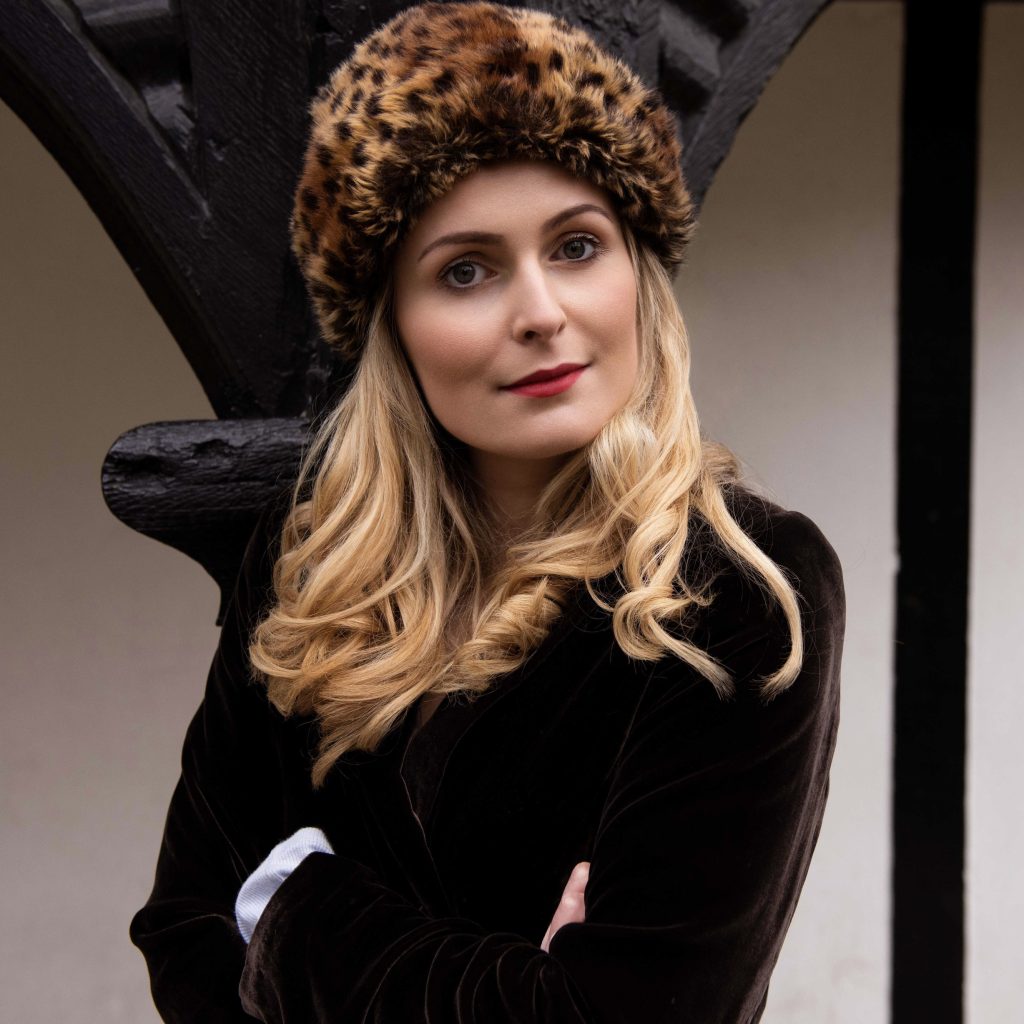
Milly Forrest is a London-born soprano based in Hertfordshire with her husband and two boys Reggie (2) and Stanley (10 months). She has been blessed with some fantastic experiences over the past six months including her solo debut with the Royal Philharmonic Concert Orchestra with Pete Harrison and working on a recording of Jonathan Sheffer’s fabulous four short operas with the RSNO.
Back in October 2022 Milly made her TV debut in ‘The Gods of the Game – a football opera” on Sky Arts in association with Grange Park Opera. She played the lead role “Eva,” a female football champion who leads the way in tackling corruption in the international game.
In recent years, Milly has won the Emmy Destinn Czech singer prize, the Patricia Routledge English song prize, the Hurn Court Opera singing competition and she was awarded the Ferrier-Loveday song prize in the Kathleen Ferrier competition. She has been lucky enough to work as a guest with the Royal Opera House’s Jette Parker Young Artist scheme on a number of occasions. In February 2022 she took part in a new music project with them celebrating international women’s day called “Lost and found” at St Pancras station in London. Milly has also understudied with the Royal Ballet on two of their productions involving vocalists in the past year.
Milly loves bringing new pieces of music to life and over the last couple of years she has sung a lot of contemporary music in some fabulous venues. She was honoured to work with Brett Dean at the Royal Festival Hall and the London Philharmonic Orchestra in “the Face of Nature” by Elliott Gyger.
Upcoming engagements in 2024 include singing the soprano solos in Carmina Burana with the Bournemouth Symphony Orchestra, returning to the Battersea Park prom to be a soloist with the London Philharmonic Concert Orchestra and working with Paul Spicer in the Petersfield Festival.
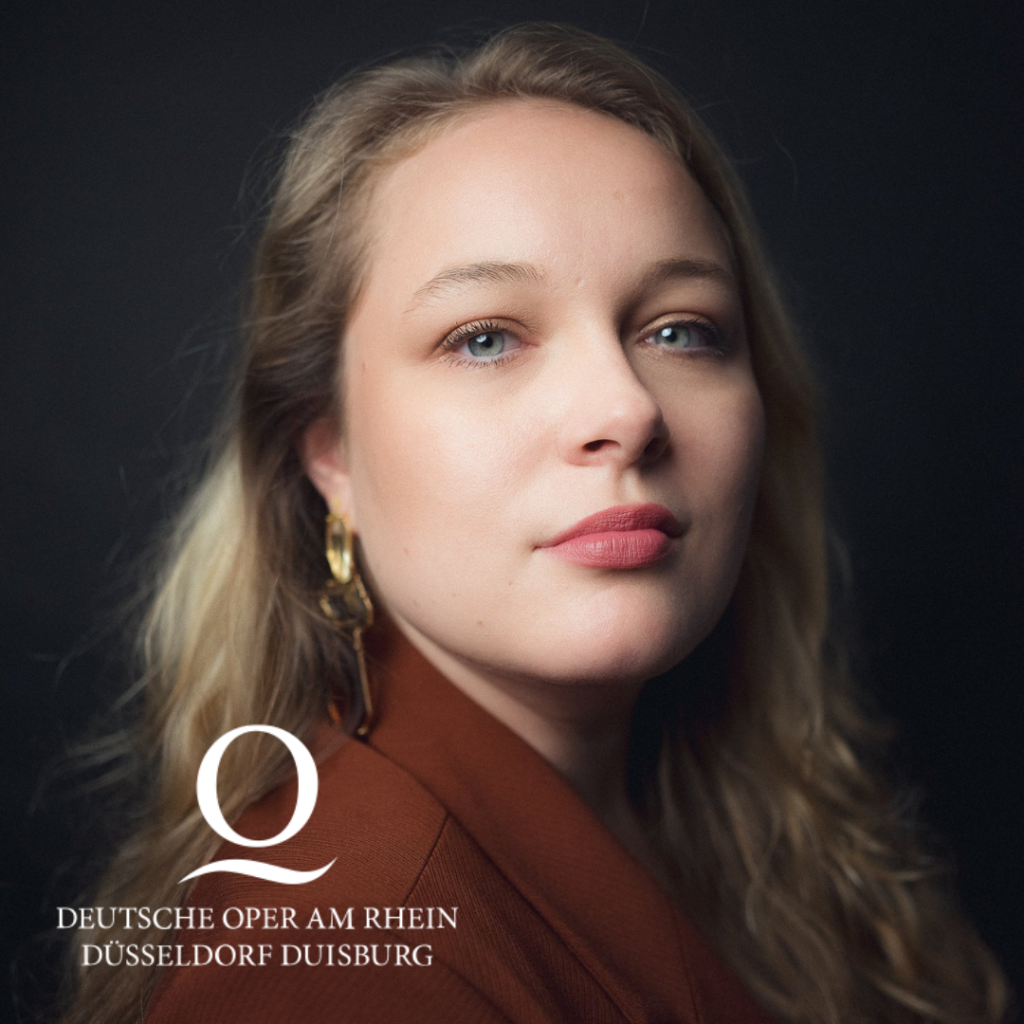
Annabel Kennedy is a Mezzo-Soprano from Devon. She graduated from the Royal College of Music’s International Opera Studio this summer as a Siow-Furniss Scholar supported by the Sir Gordon Palmer Scholarship, under the tutelage of Amanda Roocroft and Caroline Dowdle. In addition, Annabel is grateful to be supported by the Josephine Baker Trust, The Drake Calleja Trust, The Munster Trust Award and the Sybil Tutton Opera Awards.
Annabel is a Samling Artist, a Britten Pears Young Artist for 2022-2023, an Opera Prelude Young Artist, a Glyndebourne Jerwood Young Artist for 2023 and a Garsington Alveraz Young Artist for 2024.
This upcoming summer, Annabel will be singing the role of ‘Juno’ for Rameau’s Platée and covering the role of Cherubino in Mozart’s Le Nozze di Figaro at Garsington Festival Opera.
Last summer at Glyndebourne Festival Opera, Annabel covered ‘Hermia’ in Peter Hall’s famous production of A Midsummer Night’s Dream (Britten) as a Jerwood Artist, whilst also singing in the chorus for productions of L’elisir d’amore, Semele, Dialogues des Carmélites and The Rake’s Progress.
As part of the RCMIOS, Annabel has performed ‘2nd Lady’ in Mozart’s Die Zauberflöte, ‘Hänsel’ in Humperdinck’s Hänsel und Gretel, ‘Minskwoman’ in Jonathan Dove’s Flight, ‘Public Opinion’ in Offenbach’s Orpheus in the Underworld and ‘L’enfant’ in Ravel’s L’enfant et les sortilèges. Recently Annabel jumped in as cover for Longborough Festival Opera’s Double Bill in ’Spell Book’ by Freya Waley-Cohen and ‘La liberazione di Ruggiero’ by Francesca Caccini. Annabel performed as a Garsington Young Artist in the chorus and cover of ‘Noble Orphan 2’ for their production of Strauss’ ‘Der Rosenkavalier’. She performed her first principal role debut as Flora in Verdi’s ‘La traviata’ for Nevill Holt Opera, as well as singing in the chorus of Mozart’s ‘Don Giovanni’ that season.
Concert highlights include: solo debut at Cadogan Hall performing a ‘Suite of Lieder’ composed by Prince Albert of Saxe-Coburg and Gotha with the London Chamber Orchestra, under Christopher Warren-Green, Mahler’s ‘Rückert-Lieder’ with the RCM Philharmonic Orchestra under the baton of Martyn Brabbins and Wigmore Hall soloist debut singing the role of Euterpe in Handel’s ‘Parnasso in festa’ as part of the London Handel Festival.
Recent awards include: Singers’ 1st Prize in the Royal Over-Seas League Music Competition, Press Jury and Junior Jury Prizes for the IVC LiedDuo Competition in s’Hertogenbosh, Netherlands, First Prize in the Lies Askonas Competition, 1st Prize in the Brooks Van Der Pump English Song Competition, 1st Prize in the inaugural Ashburnham English Song Awards, Audience Prize at the Somerset Song Prize, Second Prize in the Hurn Court Opera Singer of the Year Competition, First Prize in the RCM Concerto Competition, Second Prize in the Maureen Lehane Vocal Awards Competition at Wigmore Hall, First Prize for the AESS Dame Patricia Routledge English Song Competition and First Prize for the AESS Courtney Kenny Award English Song Competition.
https://www.annabelkennedy.com/
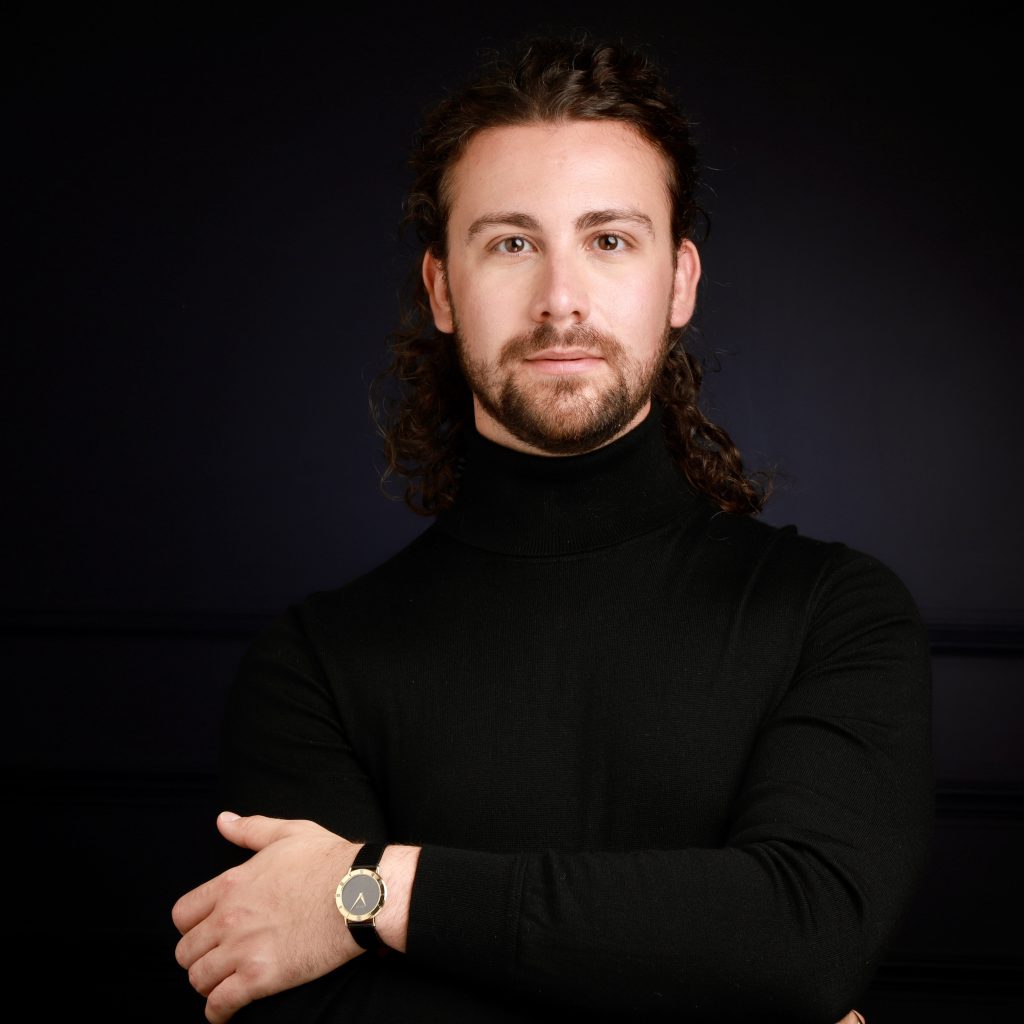
Welsh tenor Ryan Vaughan Davies is currently a Jette Parker Artist at The Royal Opera House, Covent Garden.
Operatic highlights of recent seasons include Tom Rakewell, The Rake’s Progress for Theatr und Orchester Biel Solothurn in Switzerland. Borsa, Rigoletto and Peppe(cover) Pagliacci for The Royal Opera House. Tamino(cover)Die Zauberflöte for Welsh National Opera, Peppe, Pagliacci for Iford Arts. Prunier, La Rondine for IfOpera. Rinuccio Gianni Schicchi for Royal Academy Opera. He has also previously appeared with Garsington Opera Festival, the Grange Festival, Longborough Opera Festival and Buxton Opera Festival.
In concert, Ryan recently made a number of acclaimed debuts including at the BBC Proms as the Lover in Il tabarro with the Hallé Orchestra under the baton of Sir Mark Elder. He also made his Wigmore Hall debut singing Schumman’s Liederkreis Op.24 and his debut in Northern Ireland with the Ulster Orchestra in performances of Messiah with conductor Nicholas Chalmers. He has previously made appearances at the Southbank Centre, Grieghallen Bergen, and in the US with the North American Festival of Wales.
Ryan is looking forward to debuting the role of El Remendado in Damiano Michieletto’s new production of Carmen at The Royal Opera House as well as touring with the company to Japan in the summer, where he will reprise the role of Borsa in Rigoletto. He will also make his debut at Aldeburgh singing the tenor in Haydn’s Creation with the Britten Sinfonia in April.
https://www.ryanvaughandavies.com/
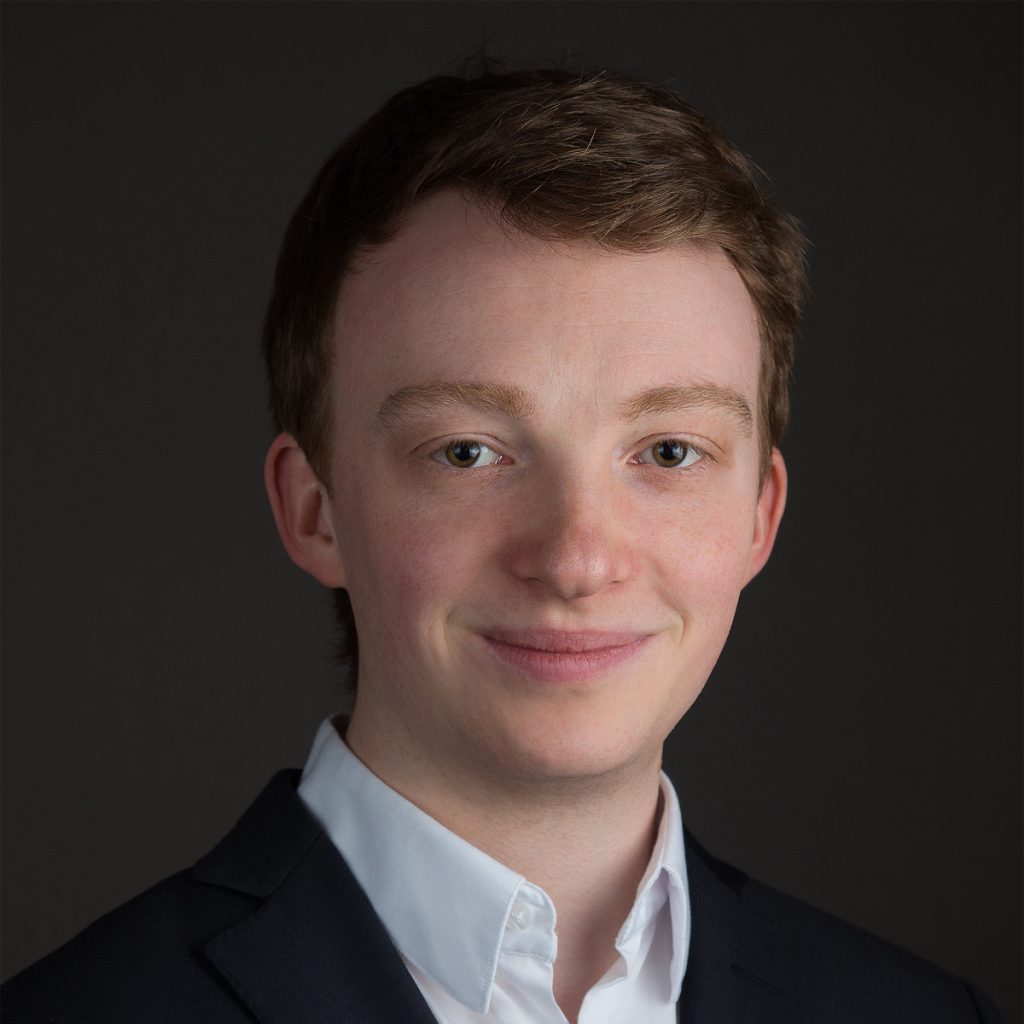
Michael Hickman (Baritone) began his musical training as a chorister in the Choir of Magdalen College, Oxford and at the Junior Royal Academy of Music, where he won the Ann Lampard Singing Prize. He studied Music at Durham University, where he was a Choral Scholar in Durham Cathedral Choir. Michael became a Lay Clerk in the Choir of Christ Church Cathedral, Oxford after graduating, and is a soloist on the choir’s celebrated series of CDs of music from the Eton Choirbook.
Michael has since pursued a freelance singing career in London, and has sung for ensembles including BBC Singers, EXAUDI, Stile Antico and Dunedin Consort, and regularly with the choirs of Westminster Cathedral, Temple Church, and St James’s Church, Spanish Place. As a soloist Michael’s recent highlights have included Handel Messiah for Halifax Choral Society and in Southwell Minster, Duruflé Requiem and Messe cum Jubilo at Temple Church, Pärt Passio in Hamburg and Cologne, Bach St Matthew Passion at St John’s, Smith Square, Bach Christmas Oratorio with the Instruments of Time and Truth, and Fauré Requiem with the Southern Sinfonia.
Michael has recently worked extensively in the field of contemporary music. Singing with EXAUDI, Michael has made recordings of music by composers including Christopher Fox, Fumio Yasuda, Ansgar Beste and Kevin Rafferty. He has also recorded Catherine Lamb’s color residua with Explore Ensemble, and given the world premiere performance as part of the Spitalfields Festival. Michael has also recently performed Michael Finnissy’s Cipriano at the Britten Theatre, Snape Maltings, as part of the Aldeburgh Festival.
Michael continues to study singing with David Barrell.
https://www.michaelhickmanbaritone.com/home-cwaq
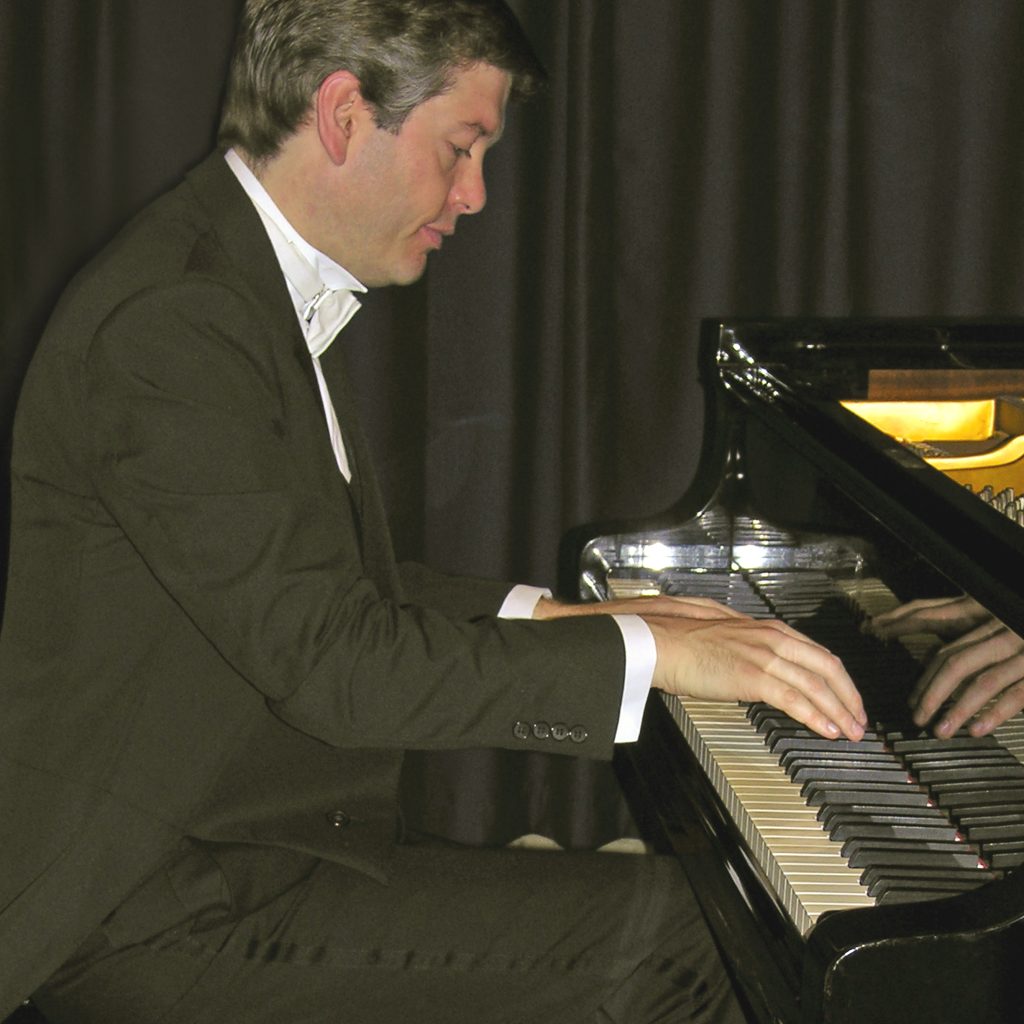
‘Roger Owens has a lovely sound, open and rounded, and shows excellent touch and control at the softest dynamics’ (Tim Parry, International Record Review); ‘Roger Owens is one of the UK’s finest pianists’ (Francis Pott, International Piano, February 2020)
Roger Owens has established himself as one of the most versatile of pianists. His repertoire is unusually wide and encompasses early keyboard music through to contemporary compositions, including several premieres of works by Alun Hoddinott and Christian Jost. His career has taken him to many parts of the world, from Pembrokeshire to Japan, along with regular appearances at the major musical centres of the United Kingdom where his playing has been acclaimed for combining effortless virtuoso technique with a warm tonal palette and vivid sensitivity.
Career highlights have included performances of Beethoven’s Emperor Concerto with the Royal Philharmonic Orchestra at London’s Barbican Centre, Rachmaninov’s Second Piano Concerto with the Royal Scottish National Orchestra at Usher Hall, Edinburgh, and Beethoven’s Choral Fantasy with the Bach Choir and the Philharmonia at the Royal Festival Hall, London. His playing at the Freden International Music Festival in Germany was described as ‘music making of overwhelming intensity… an outstanding combination of passion, musical depth and technical expertise’ (Andreas Bode, Hildesheimer Allgemeine Zeitung). He performed both Piano Concertos by Liszt in a single concert as part of the composer’s 200th Anniversary celebrations, took part in concerts at St. Martin-in-the-Fields, London to commemorate the Britten centenary, and gave two solo recitals at the Southern Cathedrals Festival in Winchester on consecutive evenings. He also performed four piano/organ recitals at Symphony Hall, Birmingham with internationally renowned organist Thomas Trotter, as well as a recital with counter-tenor David Hurley at the Three Choirs Festival in Worcester. His recording of solo piano music by Liszt, entitled Wandering Spirit, (for Claudio Records) was received with widespread critical acclaim.
Roger studied privately with Peter Gould, former Head of Music Programmes at BBC Radio 3, and then at the Royal College of Music with John Barstow MBE, where he was presented with both the Chappell and Tagore Gold Medals as well as being the inaugural recipient of the Queen Elizabeth President Emerita Scholarship. Further awards from the Hattori Foundation and the Countess of Munster Recital Scheme, along with a Harriet Cohen Memorial Scholarship, helped to launch his performing career and led to solo recital debuts at St. John’s Smith Square, London and St. David’s Hall, Cardiff. He also won the Royal Over-Seas League Piano Competition and the Bryden Thomson Recital Prize at the Scottish International Piano Competition.
He is a skilled communicator whose engaging personality makes him a popular visitor to music societies throughout the British Isles. Roger has performed as soloist and chamber musician throughout Europe, most recently at Festivals in Spain and Germany as a member of the Eluard Piano Trio with violinist Adrian Adlam and cellist Lionel Handy, and has broadcast for BBC Radio 3 and 4, Classic FM, and German radio. Future appearances include a solo recital at the Great Comp Music Festival, where he has returned by popular demand on over twenty occasions, several piano duo concerts with the pianist Catherine Milledge, and a further appearance at Symphony Hall, Birmingham later this year.
Roger joined the Music Department at Repton School in September 2018, where he is currently Head of Instrumental Music, having served as Head of Keyboard at Peter Symonds College, Winchester for almost twenty years. During this time, he forged numerous outreach schemes with local festivals and concerts series to create countless student performance opportunities, whilst also running the Chamber Music Programme and Professional Concert Series as part of the Hampshire Specialist Music Course. He remains a Professor of Piano at the Royal Welsh College of Music and Drama in Cardiff, where he leads Performance Masterclasses, and his students have won awards for diploma, recital and concerto performances. He is also an examiner for the Associated Board of the Royal Schools of Music and is in demand for adjudications and masterclasses, most recently at the Royal Northern College of Music and Royal Birmingham Conservatoire.
Roger currently lives in Repton with his wife, two children and his two dogs, Benno and Danny, named after the legendary pianists, Benno Moiseiwitsch and Daniel Barenboim!
‘I really admire Roger Owens’ piano playing. It is not only technically masterful, but also beautifully phrased and poetic’. (Sir Roger Norrington, conductor).
